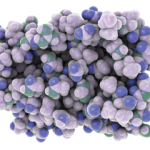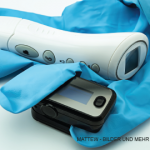Any discussion of basic science in 2021 would be remiss to exclude COVID-19 or messenger ribonucleic acid (mRNA) vaccines. Dr. Brenner highlighted a major immunologic insight into COVID-19, which elucidated how autoantibodies against type I IFN may contribute to life-threatening COVID-19 pneumonia in men, as well as how mRNA vaccines and the RNA technology may work for either immune stimulation or tolerization.4–6
Dr. Brenner also discussed an intriguing proof-of-concept study describing a “genome-engineered bioartificial implant for autoregulated anti-cytokine drug delivery” in mice.7 Using gene-editing technology, researchers created a self-regulating, synthetic gene circuit that sensed inflammation. When detected, the circuit produced natural anti-cytokine therapy (e.g., IL-1 receptor antagonist protein [IL-1Ra]). The model showcased a dynamic, autoregulated delivery of IL-1Ra that worked recurrently to mitigate inflammation, pain and structural joint damage in a mouse arthritis model.
“The future may hold bioengineered, implantable cells that respond in an immediate way to changing levels of inflammation. Although this study is a long way from translation, I see intriguing potential for drug development in the future,” he said.
To close his talk, Dr. Brenner acknowledged that there were several other outstanding papers this year that he could not present due to time constrictions.
Summary
The past year has been a prolific and exciting one in basic science related to rheumatology. The scientific community has gained new insight into the role of IL-1 in OA, and we expanded our understanding of the role the ubiquitin-proteasome system plays in inflammation. We witnessed a new scientific strategy applied to identify a novel autoinflammatory syndrome, and we discovered that retention of mitochondrial red blood cells contributes to the IFN signature in lupus. Also in 2021, we have furthered our understanding of COVID-19 and harnessed RNA technology to combat it.
We may be on the precipice of a future that holds bioengineered, implantable, autoregulated, anti-cytokine drug delivery systems.
Samantha C. Shapiro, MD, is an academic rheumatologist and an affiliate faculty member of the Dell Medical School at the University of Texas at Austin. She received her training in internal medicine and rheumatology at Johns Hopkins University, Baltimore. She is also a member of the ACR Insurance Subcommittee.
References
- Lee W, Nims RJ, Savadipour A, et al. Inflammatory signaling sensitizes Piezo1 mechanotransduction in articular chondrocytes as a pathogenic feed-forward mechanism in osteoarthritis. Proc Natl Acad Sci U S A. 2021 Mar 30;118(13):e2001611118.
- Beck DB, Ferrada MA, Sikora KA, et al. Somatic mutations in UBA1 and severe adult-onset autoinflammatory disease. N Engl J Med. 2020 Dec 31;383(27):2628–2638.
- Caielli S, Cardenas J, de Jesus AA, et al. Erythroid mitochondrial retention triggers myeloid-dependent type I interferon in human SLE. Cell. 2021 Aug 19;184(17):4464–4479.e19.
- Bastard P, Gervais A, le Voyer T, et al. Autoantibodies neutralizing type I IFNs are present in ~4% of uninfected individuals over 70 years old and account for ~20% of COVID-19 deaths. Sci Immunol. 2021 Aug 19;6(62):eabl4340.
- Bastard P, Rosen LB, Zhang Q, et al. Autoantibodies against type I IFNs in patients with life-threatening COVID-19. Science. 2020 Oct 23;370(6515):eabd4585.
- Krienke C, Kolb L, Diken E, et al. A noninflammatory mRNA vaccine for treatment of experimental autoimmune encephalomyelitis. Science. 2021 Jan 8;371(6525):145–153.
- Choi YR, Collins KH, Springer LE, et al. A genome-engineered bioartificial implant for autoregulated anticytokine drug delivery. Sci Adv. 2021 Sep 3;7(36):eabj1414.


